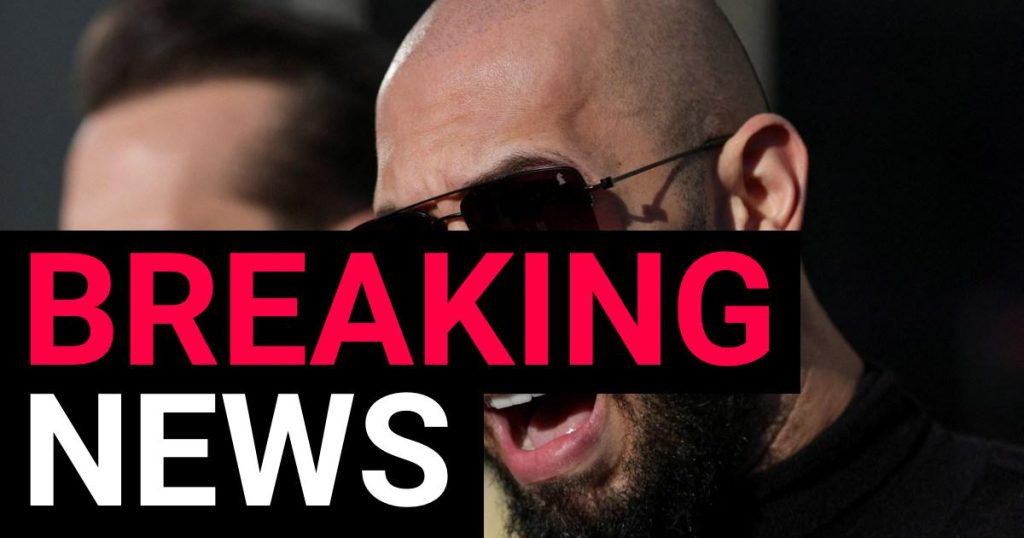Paragraph 1: Andrew Tate’s Release from House Arrest
Controversial internet personality Andrew Tate, along with his brother Tristan Tate, has been released from house arrest in Romania. A Romanian court replaced the house arrest measure with judicial control, a less restrictive preventative measure, as the criminal investigation against them continues. This development marks a significant shift in the legal proceedings surrounding the Tate brothers, who have been under investigation for alleged human trafficking, rape, and forming an organized crime group. The initial arrest in December 2022 sparked international attention, given Tate’s significant online presence and controversial views. The move to judicial control suggests a potential easing of restrictions on the brothers, though the investigation remains ongoing.
Paragraph 2: Background on Andrew Tate’s Case and Controversy
Andrew Tate rose to prominence through his online presence, promoting a hyper-masculine lifestyle and amassing a considerable following, particularly among young men. His views on women, relationships, and wealth have sparked widespread criticism and accusations of misogyny. The arrest of the Tate brothers in Romania followed allegations of human trafficking and sexual exploitation. Romanian authorities have been investigating the brothers’ alleged involvement in coercing women into creating pornographic content. The case has drawn intense scrutiny, with supporters claiming Tate is a victim of a conspiracy and critics highlighting the seriousness of the allegations against him.
Paragraph 3: Legal Implications of Judicial Control
While the specifics of the judicial control measures imposed on Andrew and Tristan Tate haven’t been fully disclosed, it generally entails certain restrictions on their freedom of movement and association. They may be required to remain within Romania, report regularly to the authorities, and avoid contact with specific individuals, including potential witnesses or victims in the ongoing investigation. Judicial control differs from house arrest in that it allows for more personal freedom, enabling the individuals to move about more freely within certain parameters. The shift from house arrest to judicial control could signal a potential shift in the prosecution’s assessment of the case, or simply reflect the passage of time and evolving circumstances of the investigation.
Paragraph 4: Public Reaction and Media Coverage
News of Andrew Tate’s release from house arrest has generated considerable public interest and media attention. Tate’s online following has been vocal in their support, often portraying him as a victim of persecution. Conversely, critics argue that his release minimizes the severity of the allegations and sends a concerning message. The case continues to fuel polarized opinions, with discussions revolving around freedom of speech, due process, and the influence of online personalities. The media coverage of the Tate case reflects this divide, with varying perspectives on the implications of his release from house arrest.
Paragraph 5: Ongoing Investigation and Potential Outcomes
The criminal investigation into Andrew and Tristan Tate remains ongoing. Romanian authorities are expected to continue gathering evidence and interviewing witnesses. The transition to judicial control doesn’t preclude the possibility of further charges or a potential trial. Depending on the evidence presented, the Tate brothers could face significant prison sentences if convicted. The outcome of the investigation will likely have a significant impact on Tate’s future and further shape public discourse surrounding his case. The legal process is expected to continue for an extended period, and the details surrounding the allegations and the evidence collected remain largely undisclosed to the public.
Paragraph 6: Broader Context and Social Implications
The Andrew Tate case raises broader questions about the influence of online personalities, the spread of misogynistic views, and the challenges of regulating online content. Tate’s rise to prominence and the controversies surrounding him highlight the potential for online platforms to amplify harmful narratives. The ongoing investigation and its eventual outcome will likely contribute to discussions about online accountability, freedom of expression, and the role of social media in shaping societal values. The case also serves as a stark reminder of the importance of critical thinking and media literacy, particularly in the digital age. The Tate brothers’ case continues to be a significant case study in the complexities of online influence and the legal challenges posed by online personalities who operate across international borders.




